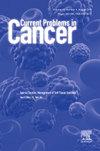Diagnostic accuracy of intraoperative frozen section in endometrial cancer: Correlation with final histopathology
IF 2.3
4区 医学
Q3 ONCOLOGY
引用次数: 0
Abstract
Purpose
Accurate intraoperative assessment of tumor characteristics for endometrial cancer, including histological type, grade, and depth of myometrial invasion (MI), is essential for determining the extent of surgery, particularly lymphadenectomy. This study aims to evaluate the concordance between intra-operative frozen section analysis (IFS) and final histopathology (FH) in endometrial cancer cases.
Methods
This retrospective analysis included 100 patients who underwent laparoscopic staging surgery for endometrial carcinoma between March 2018 and September 2024. Data on histological type, tumor grade, MI, lymph node involvement, and cervical/adnexal metastases were extracted from medical records. The diagnostic accuracy of IFS was assessed by comparing findings with FH. Sensitivity, specificity, positive predictive value (PPV), negative predictive value (NPV), and Cohen's kappa (κ) statistics were used to determine agreement levels.
Results
IFS demonstrated high concordance with FH for malignancy detection (97%, κ = 0.56). Sensitivity, specificity, PPV, and NPV were 96.9%, 100%, 100%, and 40%, respectively. Tumor grading agreement was 78.2% (κ = 0.67), with the highest accuracy in Grade 3 tumors (sensitivity 85.0%, specificity 98.3%). MI assessment showed strong agreement (κ = 0.851) with 93.7% overall accuracy. Lymph node evaluation by IFS exhibited excellent agreement (κ = 0.942), with 98.3% accuracy.
Conclusion
IFS is a reliable tool for intraoperative decision-making in endometrial cancer, particularly for malignancy detection, MI assessment, and lymph node evaluation. However, moderate concordance in tumor grading suggests caution in surgical decision-making based solely on IFS results. Future research should focus on optimizing frozen section protocols to improve diagnostic accuracy and streamline intraoperative management.
术中冷冻切片诊断子宫内膜癌的准确性:与最终组织病理学的相关性
目的术中准确评估子宫内膜癌的肿瘤特征,包括组织学类型、分级和子宫肌层浸润(MI)的深度,对于确定手术的范围,特别是淋巴结切除术的范围至关重要。本研究旨在评估子宫内膜癌患者术中冷冻切片分析(IFS)与最终组织病理学(FH)的一致性。方法回顾性分析2018年3月至2024年9月期间接受腹腔镜子宫内膜癌分期手术的100例患者。从医疗记录中提取组织学类型、肿瘤分级、心肌梗死、淋巴结受累和宫颈/附件转移的数据。通过比较IFS与FH的诊断结果来评估IFS的诊断准确性。采用敏感性、特异性、阳性预测值(PPV)、阴性预测值(NPV)和Cohen’s kappa (κ)统计来确定一致性水平。结果fs与FH在恶性肿瘤检测中的一致性较高(97%,κ = 0.56)。敏感性、特异性、PPV和NPV分别为96.9%、100%、100%和40%。肿瘤分级一致性为78.2% (κ = 0.67),其中3级肿瘤准确率最高(敏感性85.0%,特异性98.3%)。MI评估显示高度一致(κ = 0.851),总准确率为93.7%。IFS对淋巴结的评价具有良好的一致性(κ = 0.942),准确率为98.3%。结论ifs是子宫内膜癌术中决策的可靠工具,尤其适用于恶性肿瘤检测、心肌梗死评估和淋巴结评估。然而,肿瘤分级的中度一致性表明,仅根据IFS结果进行手术决策时要谨慎。未来的研究应侧重于优化冷冻切片方案,以提高诊断准确性和简化术中管理。
本文章由计算机程序翻译,如有差异,请以英文原文为准。
求助全文
约1分钟内获得全文
求助全文
来源期刊

Current Problems in Cancer
医学-肿瘤学
CiteScore
5.10
自引率
0.00%
发文量
71
审稿时长
15 days
期刊介绍:
Current Problems in Cancer seeks to promote and disseminate innovative, transformative, and impactful data on patient-oriented cancer research and clinical care. Specifically, the journal''s scope is focused on reporting the results of well-designed cancer studies that influence/alter practice or identify new directions in clinical cancer research. These studies can include novel therapeutic approaches, new strategies for early diagnosis, cancer clinical trials, and supportive care, among others. Papers that focus solely on laboratory-based or basic science research are discouraged. The journal''s format also allows, on occasion, for a multi-faceted overview of a single topic via a curated selection of review articles, while also offering articles that present dynamic material that influences the oncology field.
 求助内容:
求助内容: 应助结果提醒方式:
应助结果提醒方式:


